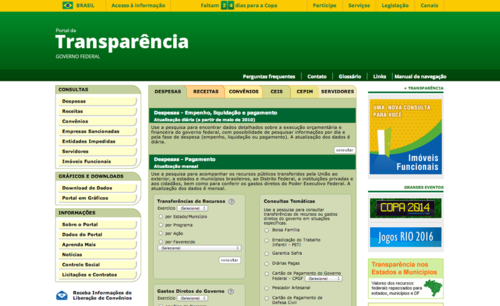This will be the last Newsbrief of 2014. See you in 2015!
News from the parliamentary monitoring community:
In India, PRS Legislative Research held its 7th annual Conference on Effective Legislatures, which featured several lectures exploring the ways in which the parliament can more effectively fulfill its mandate. In preparation for the conference, which took place on December 9, PRS Legislative Research drafted three discussion papers on Parliament’s Role in Financial Oversight, Parliament as a Law Making Body, and Parliamentary Oversight of the Executive.
In Tunisia, Al Bawsala published a report on the development of rules of procedure in the National Constituent Assembly. The report also includes the organization’s recommendations for changes to the rules of procedure that would strengthen the Assembly and make it more transparent.
In Croatia, noting increasing public distrust of politicians and members of parliament, GONG has released recommendations to improve the management of conflicts of interest and strengthen public integrity systems.
In Kenya, Mzalendo launched the People’s Shujaaz Awards to recognize members of parliament in the National Assembly and Senate that have served as champions of the public interest.
In Malaysia, Sinar Project launched BillWatcher, making it easier to find, search for, and discuss pieces of legislation introduced in the Malaysian parliament.
In Australia, OpenAustralia.org – a website built and managed by the Open Australia Foundation – now includes searchable data on how members of parliament vote.
